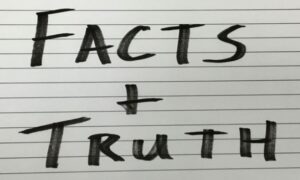One of the most common questions we are asked is, “What should I say at my Social Security Disability (SSD) hearing?” While this is an important question, a better question is, “What should I NOT say at my SSD hearing?”
 Attorneys are compelled to be honest and forthright about all aspects of a claim. When hearing a claim, the judge has prepared for your case and read your medical records, your claim, your work history, and your earnings history. Trying to deceive the judge or withhold information relevant to your claim may seriously discredit you. It is always best, and advised, to be truthful.
Attorneys are compelled to be honest and forthright about all aspects of a claim. When hearing a claim, the judge has prepared for your case and read your medical records, your claim, your work history, and your earnings history. Trying to deceive the judge or withhold information relevant to your claim may seriously discredit you. It is always best, and advised, to be truthful.
Here are some notable statements you should NOT say at your disability hearing:
- “I can do anything.” Telling the judge, “I can lift whatever I want, but my back will just hurt a lot the next day,” does nothing to help your claim. The judge is trying to determine what you can do or what you can lift to avoid serious injury. Be reasonable about your limitations and be honest with yourself and the judge about how limited you really are.
- “I can’t do anything.” This is the other side of a precarious issue: if you are alleging mental health disabilities only, you will not need to prove your inability to lift any weight. It is okay to say that you do not have issues in that area. In all actuality, if you begin sharing information that is not included or supported in your record, the judge may become suspicious. Be honest with yourself and the judge about your limitations.
- “I was disabled before I quit working.” The judge is not looking at the time while you worked. If you were working, you were not disabled enough to not work. A better approach is to focus on why your job ended or why you cannot return to work. Your attorney will be able to guide you through this type of questioning.
- “I never did that.” If a judge is asking about a certain activity, trip, or hobby, they are trying to gain context or an explanation for it. It does not mean you were not to do it; they simply are trying to evaluate the extent of your disability. Remember, be honest. If you were an avid hunter but are now unable to hunt due to your disability, that is a good way to explain it, rather than saying, “I don’t hunt”.
- “Yes. Yes. Yes.” More than likely, the judge will ask a series of questions that could be answered with simply “yes” or “no.” Some of these questions may include, “Can you make your bed?” “Are you able to dress yourself?” “Can you stand to do dishes?” Many people can do these types of activities to some extent, but saying “yes”, that you can do them all sounds like an overestimation of your condition. Rather, you should answer these questions with additional context. “Yes, I can wash the dishes, but I often need a break.”

Clients often are ready to share…actually overshare—when it comes to explaining or describing the reason they cannot work and should receive their disability benefits. This information is important. Allow your attorney or the judge to guide you by the questions they ask during your disability hearing. You will want your information to be presented in an organized manner and well thought out. Allow your attorney or the judge to ask questions and then answer the question specifically asked of you.
Ultimately, obtaining legal representation for your SSD claim gives you a better chance of receiving a favorable decision for SSD benefits. The attorneys at Parmele Law Firm have a combined 135 years of SSD experience—who would not want that amount of knowledge representing them? Our attorneys will prepare you with what to say as well as issues that may need to be addressed. If you are ready to begin your SSD claim, contact Parmele Law Firm. We are here to guide you with integrity, competency, and experience.
